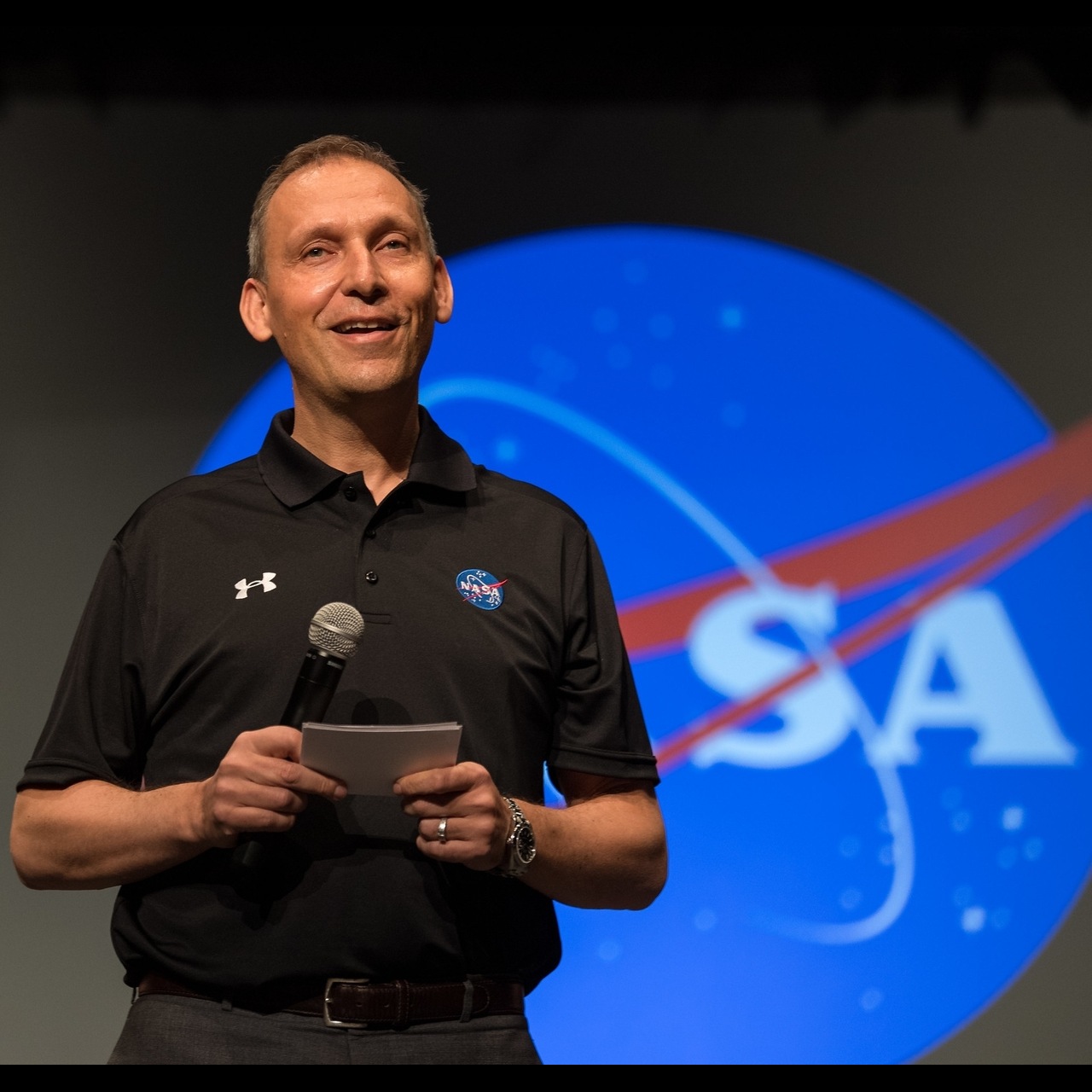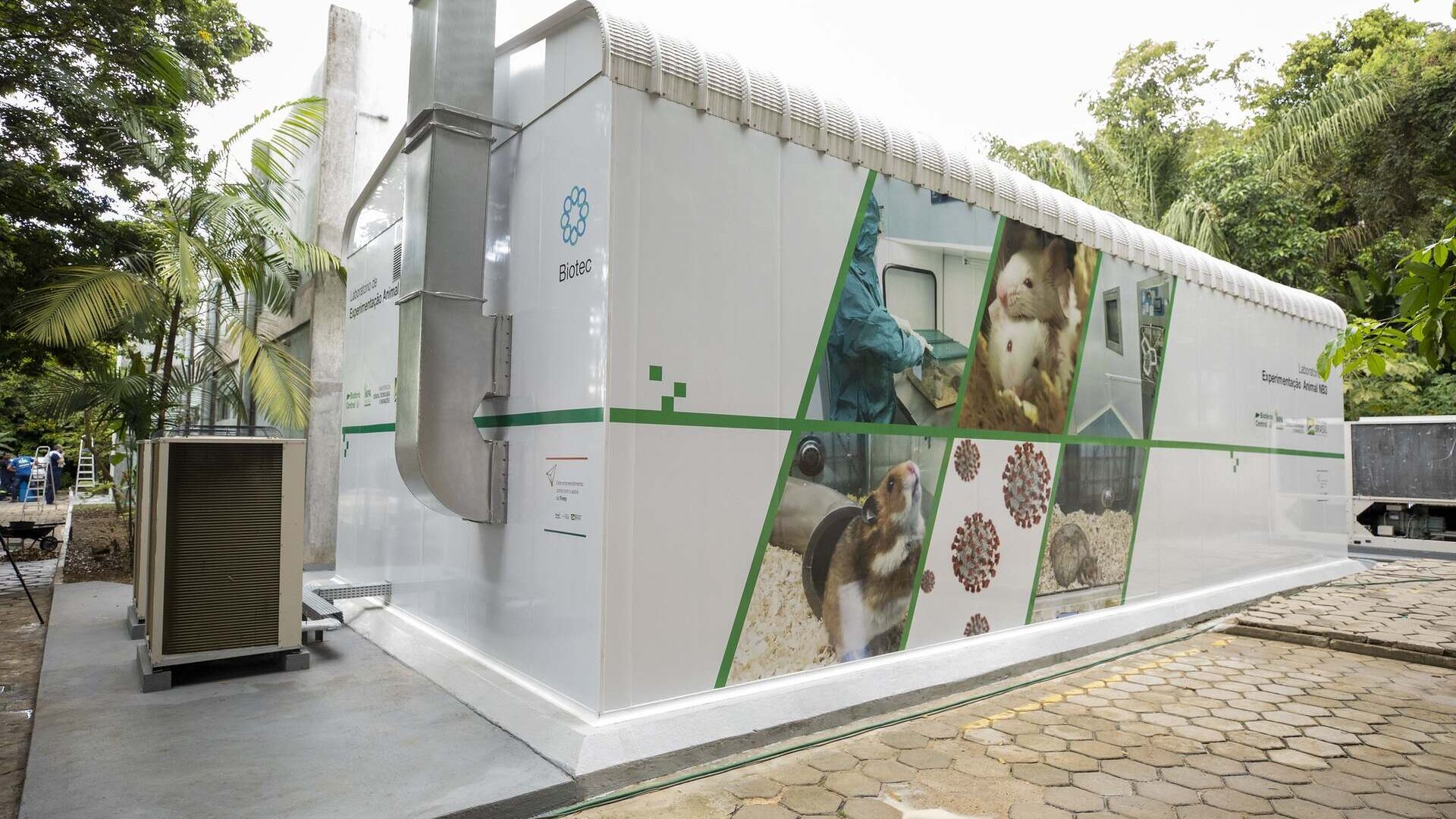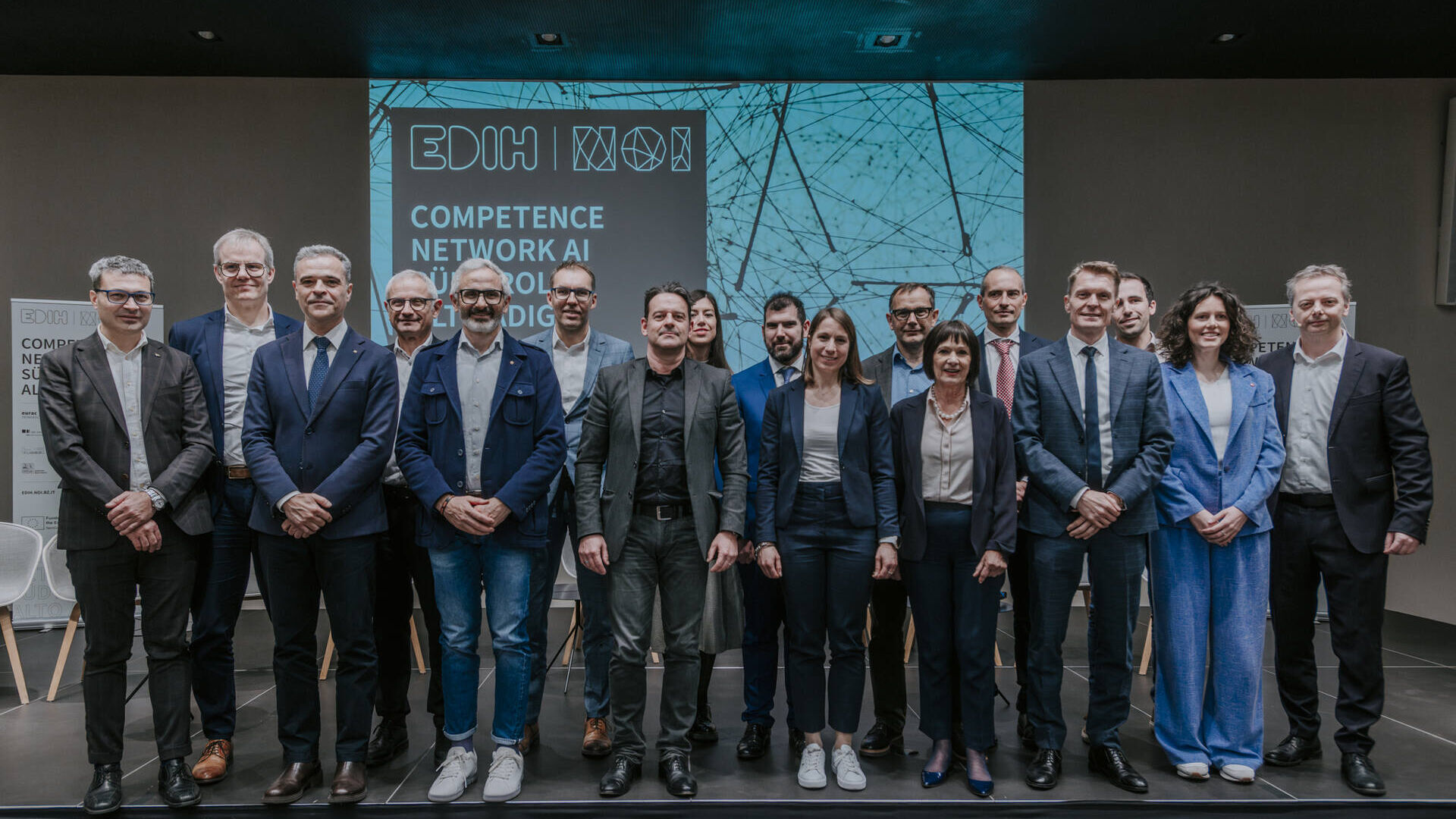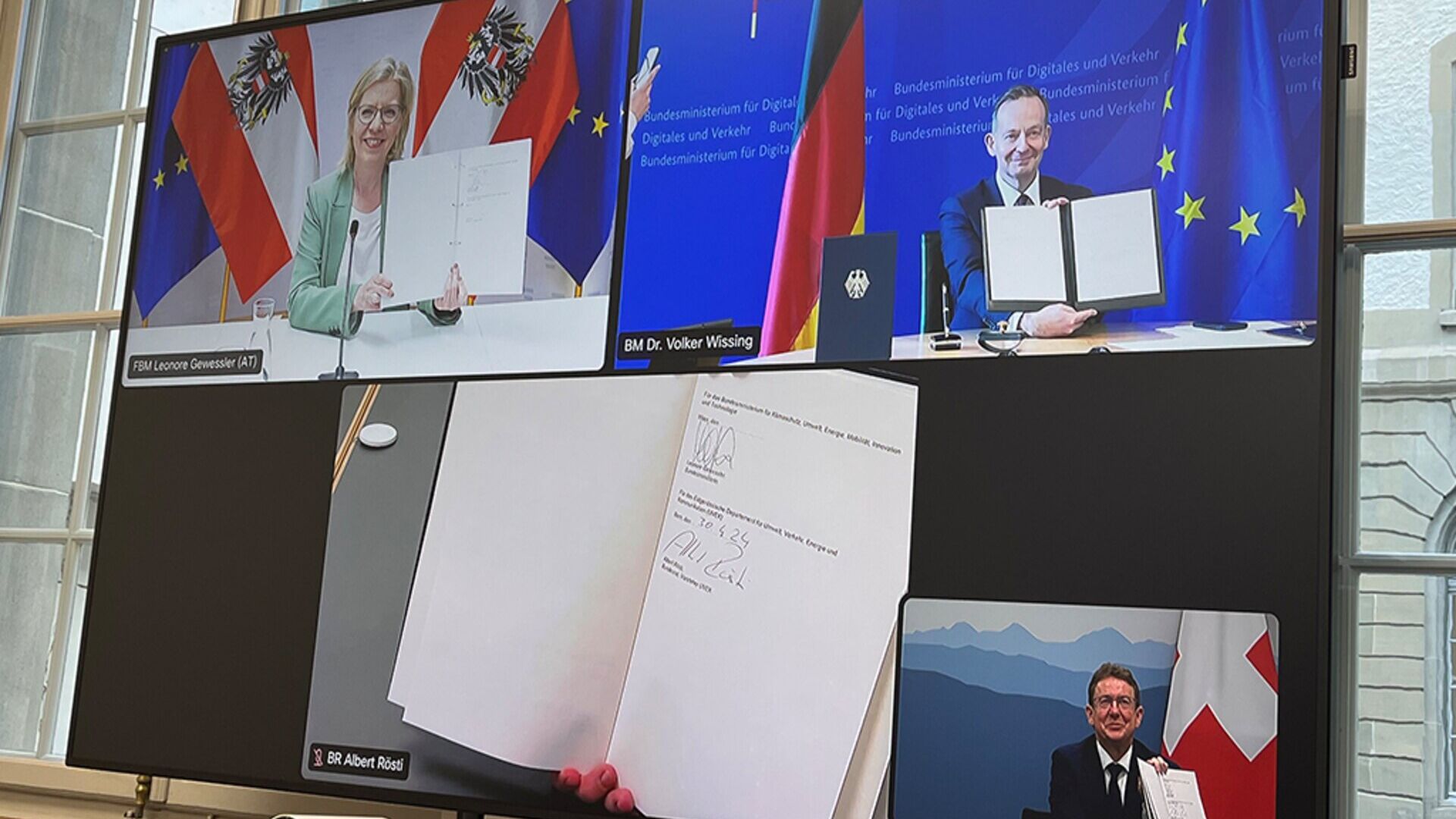A new Master in Space Systems at the Zurich Polytechnic
A new master's degree will be launched at ETH in autumn 2024, but interested parties will be able to start applying as early as April
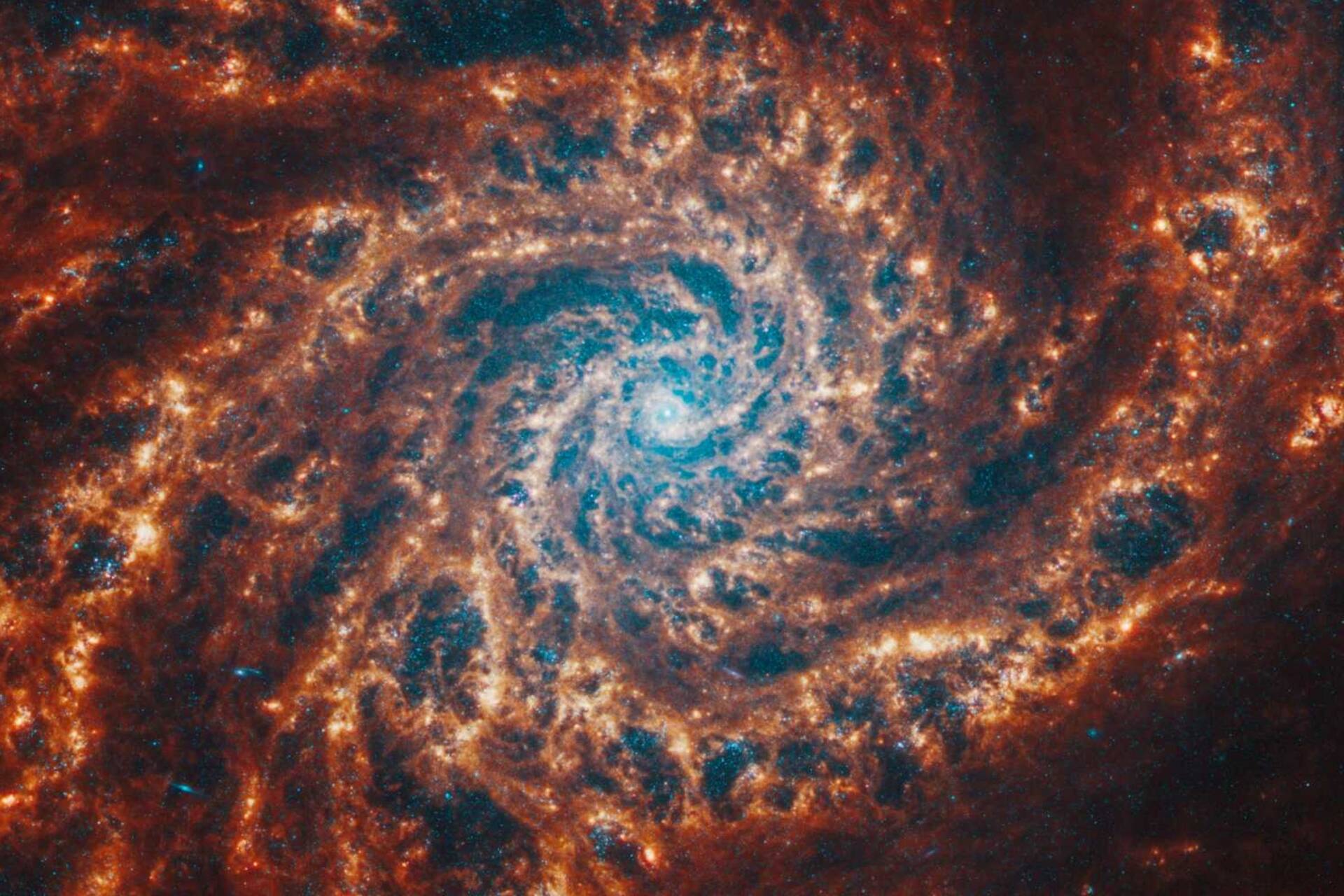
Researchers at ETH Zurich have long been developing robots for use on the Moon, searching for Earth-like exoplanets and studying marsquakes on the Red Planet.
They investigate new technologies for the space industry and use data from space for climate and security research.
These activities will now be integrated in Switzerland into a new and innovative course of study: a Master's program in Space Systems.
With the launch of this academic path, the Federal Institute of Technology intends to satisfy a long-cherished wish of students, including those who build space rockets and satellites as members of the association.
However, the university also responds to the needs of the economy.
The space industry is growing and urgently needs skilled workers.
In San Marino the first international event in the aerospace sector
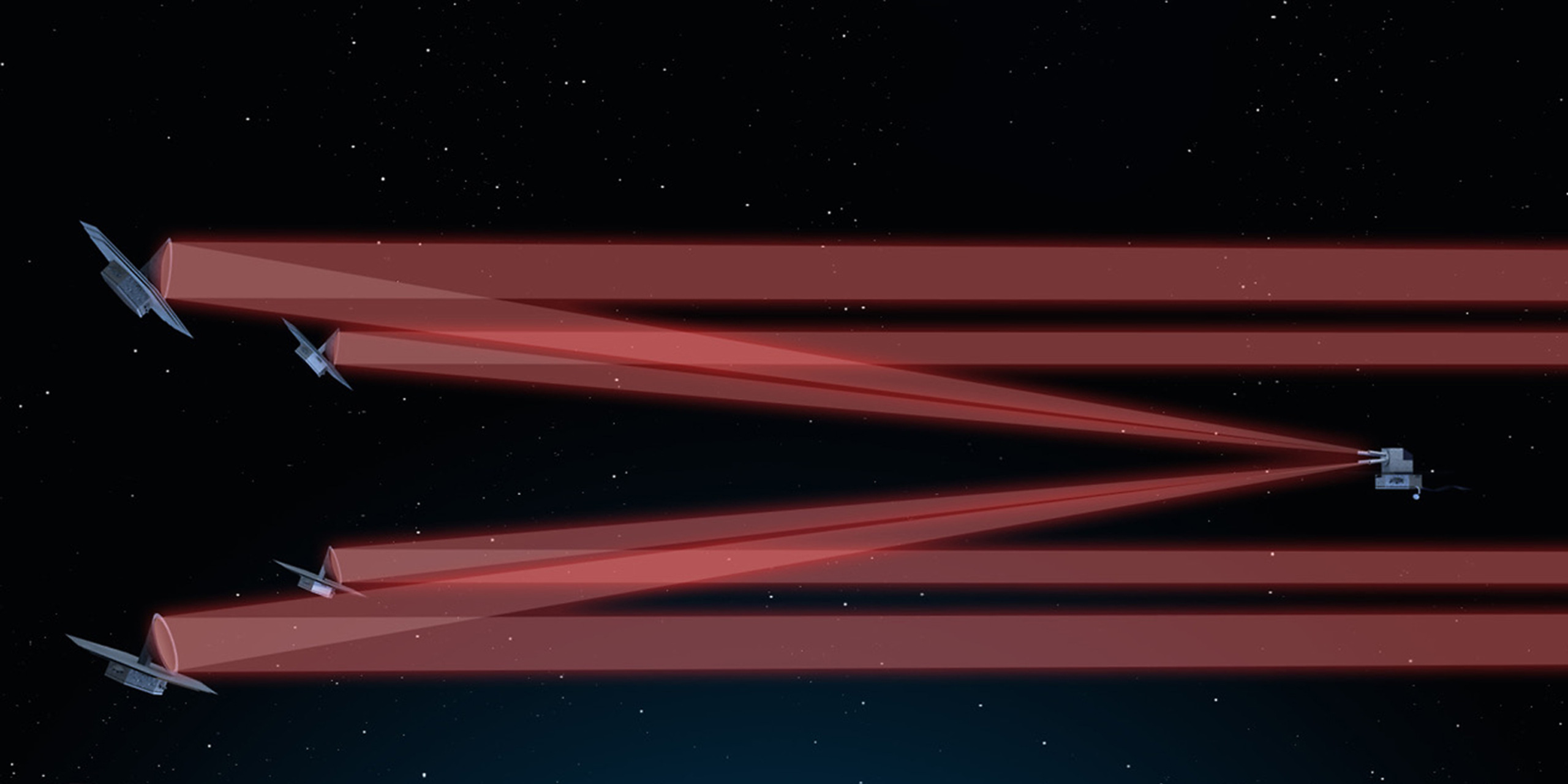
(Illustration: LIFE Initiative/ETH Zurich)
The $500 billion invested in the space industry today will triple by 2040
Global investment in the space industry amounts to more than $500 billion and is expected to triple by 2040.
In the Swiss Confederation there are numerous companies that produce components for the space industry.
Furthermore, new Swiss companies are constantly being created in this field, including several ETH spin-offs.
The black scientist and that "Nazi" voice in space
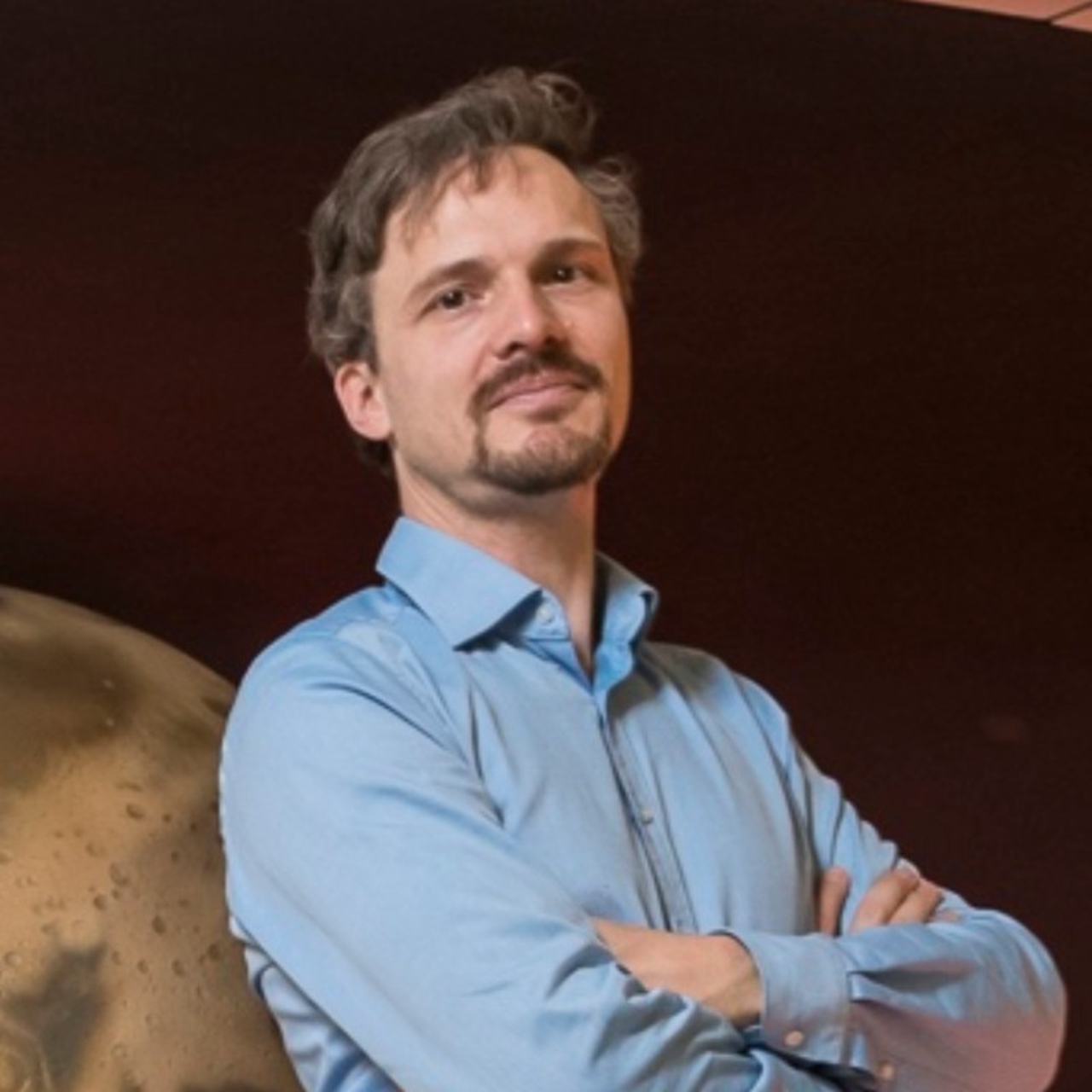
(Photo: ETH Zurich)
Simon Stähler: “Access to the sky is much easier, even for commercial operators”
“The new Master's program represents an important milestone on the way to taking space science to the next level at ETH, in Switzerland and in Europe”, says Thomas Zurbuchen, former associate administrator of NASA's Science Mission Directorate and now a professor at ETH Zurich.
He is director of the ETH Space initiative and was the creator of the launch of the new course of study.
“The space industry desperately needs people who have an overview of the complex systems involved and understand the interdependencies of subsystems: from propulsion and navigation of launch systems to scientific experiments.”
Simon Stähler, a researcher at the university of the city located on the banks of the Limmat, is responsible for the implementation of the new Master's program, and he himself does research on earthquakes.
He adds: “Gaining access to the sky is becoming easier, even for commercial operators, who can already purchase space on satellites today. In the future we will need many more specialists who really understand space systems."
Yes in Bologna to the strategic forum for the aerospace supply chain
Thomas Zurbuchen: “A unique program in Europe because it is highly interdisciplinary”
Students in the graduate program will gain knowledge of space systems (i.e. satellites, launch vehicles, telescopes and spacecraft) and learn the fundamentals of Earth and planetary sciences and astrophysics.
They will also choose between space engineering, space communication, robotics, Earth observation or planetary sciences as the subject of cultural study.
Group projects and case studies, in which students from different disciplines work together on certain solutions, will be an integral part of the program.
As Zurbuchen states, “the Master's program is unique in Europe because it is strongly focused on commercial space research and is consistently interdisciplinary, while offering the in-depth knowledge of the engineering and natural science disciplines for which ETH is renowned.”
The degree program is a joint offering of the four Departments of Earth Sciences, Physics, Mechanical and Process Engineering, as well as Computer Science and Electrical Engineering.
However, collaboration with industry plays a fundamental role, in addition to partnerships with other universities.
Euclid, the ESA mission to hunt for the dark forces of the universe…
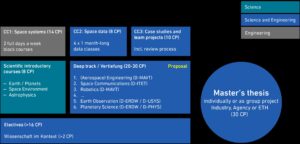
The fastest ever launch of a degree course, because it is "urgently needed"
From April 2024, students who have or are close to obtaining a Swiss bachelor's degree will be able to apply for a place in the pilot year, which will begin in September XNUMX, just eight months after planning for the new Master's program begins.
Never before has a study program been implemented so quickly at ETH.
Günther Disserters, rector of ETH Zurich, is enthusiastic: “From the beginning everyone collaborated. It was clear that a program like this was urgently needed. I am delighted that the first group of students will soon benefit from this and would like to thank everyone involved for demonstrating such commitment.”
The first "flag" on the Moon? It was white and made-in-Switzerland
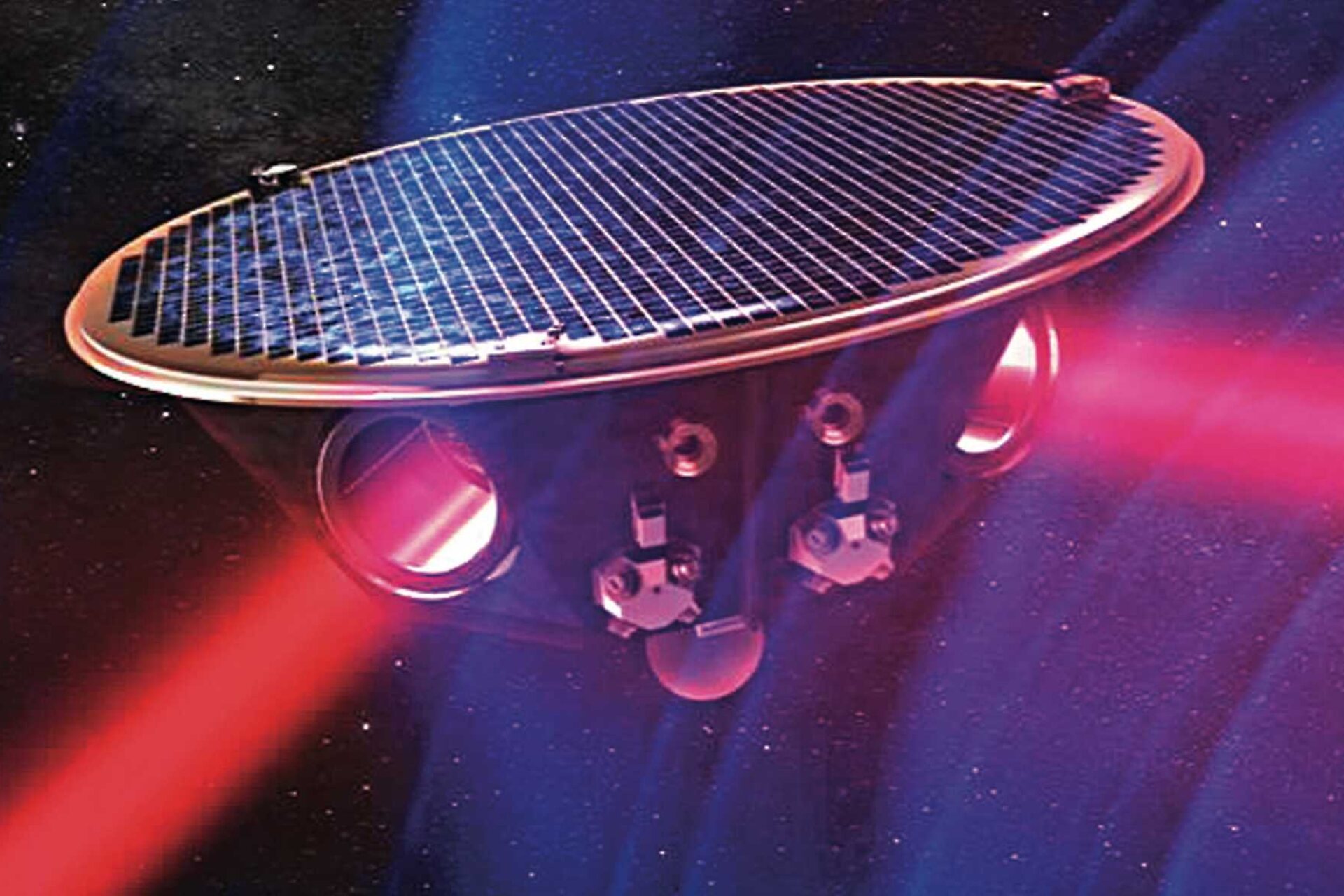
(Illustration: LISA/ETH Zurich Initiative)
For international students, starting in fall 2025 with enrollment as early as November 2024
For international students, the enrollment window for the second year of the course, starting in autumn 2025, will open in November 2024.
The specialist Master's degree is suitable for engineering and natural science students who have excelled in their degree course and who have some experience of the subject.
You also need a solid foundation in mathematics and physics, corresponding to the level of the ETH bachelor's courses.
The Master's program is explicitly also open to candidates from other universities.
Students who do not meet the subject requirements may be admitted provided they fill relevant gaps and take additional examinations.
“I want to launch one of the world's best interdisciplinary master's programs in space science and technology to train the next generation of space leaders”he concluded Thomas zurbuchen, professor of space science and technology at ETH.
Raffaella Greco: “From San Marino Aerospace to a sector cluster”
Robots for lunar exploration according to Thomas Zurbuchen of ETH
The mission to Mars according to Simon Christian Stähler of ETH

You may also be interested in:
In Brazil the first meeting in the world between biosafety and synchrotrons
In Campinas, a NB4 level maximum biological containment laboratory will be connected to the light sources of a particle accelerator
In Alto Adige today EDIH NOI is the new point of reference for AI
4,6 million euros from the PNRR fund will be allocated to Bolzano for services to local companies in the digitalisation of intelligence…
by Editorial staff Innovando.NewsEditorial staff of Innovando.News
Austria, Germany and Switzerland for "more innovative" cargo railways
DACH Ministers Leonore Gewessler, Volker Wissing and Albert Rösti: the introduction of Digital Automatic Pairing is a key element
by Editorial staff Innovando.NewsEditorial staff of Innovando.News
Persuasion or manipulation? Genesis and historical impact of PR
This is how Public Relations, from the sophistic dialogue of ancient Greece to the current digital era, continues to offer continuous innovation


